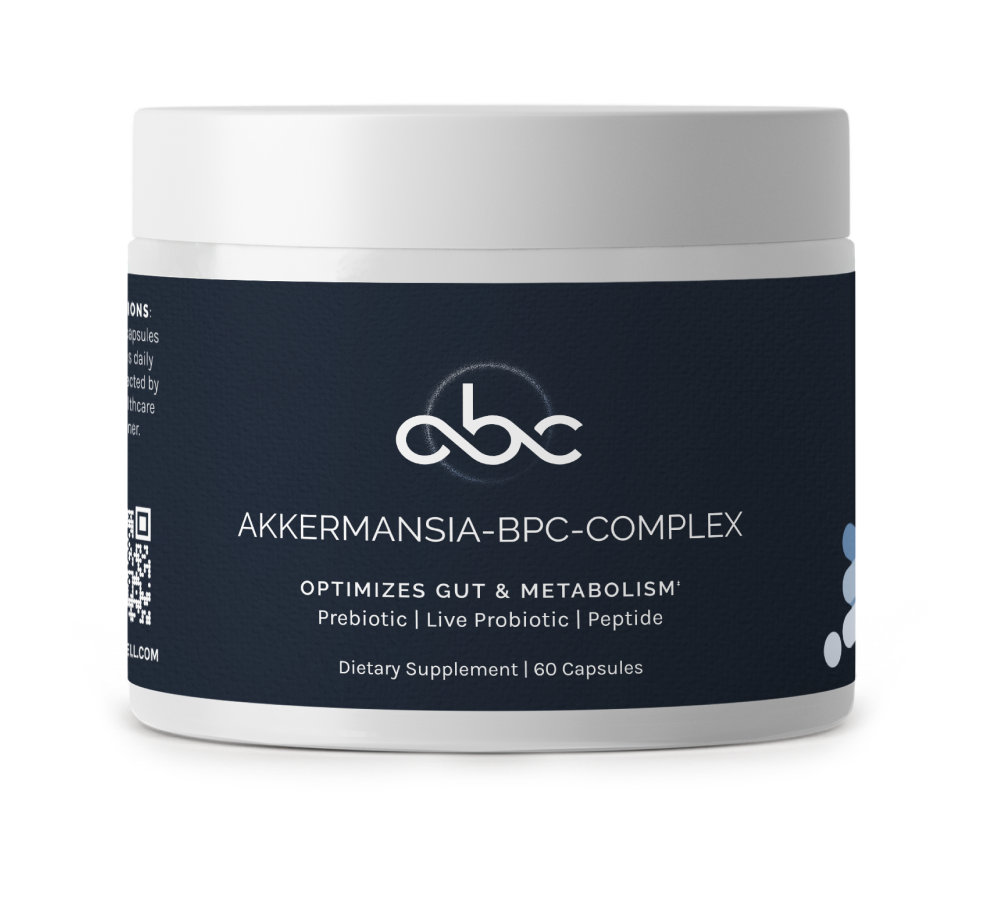Key takeaways
-
Skin aging results from both internal biological changes and external factors like sun exposure, pollution, and stress, all of which affect how skin looks and behaves over time.
-
GHK-Cu is a naturally occurring copper peptide that supports healthy skin function, collagen production, and elasticity—making it a valuable ingredient in anti-aging skincare.
-
You can use topical GHK-Cu creams and serums at night to support firmer, more even-looking skin—especially when paired with hydrating ingredients like hyaluronic acid or niacinamide.
-
A consistent skincare routine—built around cleansing, hydration, antioxidants, targeted treatments like GHK-Cu, and daily sunscreen—can influence how your skin looks and feels over time.
-
Healthy lifestyle habits, such as staying hydrated, managing stress, and working with a dermatologist, can complement skincare efforts and support graceful aging from the inside out.
Most people start to notice the first signs of aging—fine lines, dullness, or a loss of firmness—sometime in their 30s. For some, it’s earlier. For others, it comes later. Either way, the changes tend to sneak up, leaving many wondering how and why their skin has shifted seemingly overnight.

The truth is, aging skin isn’t just about time. It’s the result of complex biological processes influenced by everything from sun exposure and stress to lifestyle habits and genetics. You don’t need a medical degree to understand the basics—just knowing what’s happening beneath the surface can help you make smarter skincare choices.
What happens to skin as we age?
Skin aging is a gradual process influenced by both internal changes and external stressors. Together, they affect how skin looks, feels, and functions over time.
Internal changes
As people get older, several biological shifts take place beneath the surface:
-
Cell turnover slows down, meaning dead skin cells linger longer, dulling the complexion.
-
Collagen and elastin production declines, reducing the skin’s firmness and flexibility.
-
The epidermis becomes thinner, and the fat layer beneath the skin starts to shrink, leading to increased sensitivity and less natural cushioning (the layer that helps absorb impact and maintain facial contours).
External factors
Many signs of skin aging are accelerated by things you encounter daily:
-
UV exposure, pollution, chronic stress, smoking, and excess alcohol are all linked to premature aging.
-
These factors contribute to free radical activity, which breaks down collagen and damages skin cells, a process known as oxidative stress.
Over time, these internal and external factors add up, with signs of aging often appearing first on facial skin, including:
-
Fine lines and wrinkles
-
Dryness and rough patches
-
Sagging or loss of firmness
-
Uneven tone or texture
-
Age spots and other pigmentation changes
While these changes are natural, they’re not entirely out of your control. How you care for your skin—through daily habits and smart ingredient choices—can influence how you age and how your skin responds.
Also read: Unlocking Cellular Health: Senolytics, Autophagy, and the Quest for Lifespan Extension
GHK-Cu peptide: Backed by science, built for skin
To support firmness, elasticity, and overall skin appearance, many turn to ingredients like GHK-Cu—a copper-based peptide with decades of research behind it.
Originally identified in human plasma in the 1970s, GHK-Cu (short for glycyl-L-histidyl-L-lysine with a copper ion attached) is a naturally occurring compound categorized as a tripeptide copper complex—a class of peptides often used in skincare that bind to copper ions. In doing so, they help transport and deliver copper, an essential trace element, to where it’s needed in the skin to support important cellular functions.
Today, GHK-Cu is increasingly used in skincare for its potential to address visible signs of aging at the cellular level. Research suggests it can:
-
Support production of healthy skin cells
-
Encourage collagen and elastin synthesis (the process of creating new proteins that keep skin firm and flexible)
-
Act as an antioxidant, protecting skin from environmental stressors and free radical damage
Outside of cosmetic use, GHK-Cu has been explored in clinical settings for how it influences tissue processes, further underscoring its potential in anti-aging skincare.
Also read: Are Peptides Safe? Benefits and Risks Explained
GHK-Cu creams: Benefits, uses, and buying tips

GHK-Cu is often formulated into creams or serums that target visible signs of aging. These products deliver the copper peptide directly to the skin, where it may support collagen production and encourage smoother, more resilient skin with consistent use.
When used regularly, GHK-Cu creams and serums may help:
-
Improve visible firmness and radiance of skin
-
Soften the appearance of fine lines and wrinkles
-
Refine texture and even out skin tone
-
Promote a more youthful, revitalized appearance
GHK-Cu is also commonly included in both skin and hair products, thanks to its wide-ranging cosmetic applications. In anti-aging creams, it’s typically formulated as a copper-binding peptide cream, helping deliver copper, an essential mineral, to areas of the skin where it's needed most.
How GHK-Cu creams and serums are used
Most GHK-Cu products are designed for nightly use—applied after cleansing and toning but before heavier moisturizers. Some are gentle enough for daily use, while others work best a few times per week, especially when used with active ingredients like retinol or exfoliating acids.
Prescription vs. over-the-counter
While prescription-strength copper peptide creams exist—often for medical uses like wound healing or post-procedure care—most anti-aging versions are available over the counter. These cosmetic formulations focus on skin appearance rather than medical treatment and are generally milder.
What to look for in a GHK-Cu product
Not all copper peptide creams are created equal. When choosing one, consider the following:
-
Concentration matters: Look for products that clearly list GHK-Cu (or copper tripeptide-1) near the top of the ingredient list. Some brands disclose the percentage, with concentrations around 0.05% to 0.5% commonly used in cosmetic products.
-
Smart pairings: GHK-Cu plays well with ingredients like hyaluronic acid (for hydration), niacinamide (for tone and barrier support), and antioxidants like vitamin C or E.
-
Gentle formulation: Avoid products with alcohols, strong fragrances, or harsh preservatives, especially if you have sensitive or mature skin.
With regular use, GHK-Cu creams can offer a gentler way to support firmer, more vibrant-looking skin—no harsh treatments required.
How to build an effective anti-aging skincare routine
An anti-aging routine doesn’t have to be complicated. It just needs to be consistent and built around the right ingredients. The earlier you start, the better your skin can maintain its natural resilience over time.
A good routine focuses on both protection and support, and it should work for your skin type—whether you have aging, sensitive, or normal skin.
Start with the basics
Here’s what a well-rounded anti-aging routine might look like:
-
Gentle cleanser: A non-stripping formula removes dirt, oil, and makeup without disrupting your skin barrier. This sets the stage for everything that follows.
-
Hydrating toner or essence: These help replenish moisture and improve absorption of serums and treatments.
-
Antioxidant serum: In the morning, use a vitamin C serum to help defend against environmental stressors. At night, GHK-Cu may support skin renewal and contribute to a smoother, healthier-looking complexion over time.
-
Retinol or GHK-Cu: Retinol encourages cell turnover—the process of shedding old skin cells and replacing them with new ones. It helps soften fine lines but can be irritating for some. GHK-Cu is a gentler option and works well on its own or on alternating nights with retinol.
-
Rich moisturizer: Skin tends to hold less moisture with age. A nourishing cream helps lock in hydration and support the skin barrier.
-
Daily sunscreen: This is non-negotiable. Look for SPF 30 or higher with zinc oxide for UVA/UVB protection. Formulas with iron oxide also help defend against blue light, which contributes to visible aging.
Why consistency (and timing) matters
Skin responds best to steady, long-term care. Starting a routine before deep lines and texture changes set in can help maintain skin’s natural resilience. And even if aging signs have already appeared, a consistent routine can still make a visible difference over time.
Dermatologist-backed tips for aging gracefully
Skincare products can do a lot, but long-term results often come down to lifestyle choices and expert guidance. Here’s what dermatologists often recommend when it comes to aging well and maintaining youthful skin:
-
Partner with a dermatologist: A professional can assess your skin type, environment, and health history to recommend products and treatments that actually make sense for you.
-
Be gentle with your skin: Skip overly harsh cleansers, frequent exfoliation, or strong actives that can damage the skin barrier. Less is often more, especially as skin becomes more delicate with age.
-
Stay hydrated and eat well: Drinking water and eating nutrient-rich foods (like those high in antioxidants, omega-3s, and vitamins A and C) supports your skin from the inside out.
-
Prioritize rest and stress management: Chronic stress and poor sleep can raise cortisol levels, which contributes to collagen breakdown and dull, reactive skin. Make sleep and stress management part of your skincare routine.
These habits won’t erase time, but they can absolutely influence how your skin responds to it.
The bottom line: Science-driven skincare for every age
Aging skin doesn’t happen overnight—it reflects a mix of biological shifts and everyday habits that build up gradually. From slower cell turnover to external stressors like UV exposure and pollution, many factors influence how skin looks, feels, and functions as the years go by.
The encouraging part? With the right approach, you can support your skin’s natural rhythms and maintain a healthier, more resilient complexion. Ingredients like GHK-Cu offer a research-backed way to nourish aging skin.
Whether you’re just beginning to see changes or refining a long-standing routine, now’s a smart time to explore skincare grounded in science. GHK-Cu-based products can be a valuable addition—and for more personalized guidance, it’s always worth connecting with a skincare professional.
Terms to know
-
GHK-Cu: Short for glycyl-L-histidyl-L-lysine with a copper ion attached. A naturally occurring peptide known for its potential skin benefits, including supporting collagen production and visible skin renewal.
-
Copper peptides: Small protein fragments that bind to copper ions. They’re often used in skincare for their potential to support firmness, elasticity, and overall skin appearance.
-
Topical tripeptide copper complex: A category of copper peptides—like GHK-Cu—formulated for use on the skin. These peptides help deliver copper, an essential trace mineral, to support healthy skin function.
-
Collagen: A structural protein in skin that helps maintain firmness and elasticity. Collagen levels naturally decline with age.
-
Elastin: A protein that gives skin its stretch and bounce. Like collagen, elastin decreases over time, contributing to sagging.
-
Cell turnover: The process by which skin sheds old cells and replaces them with new ones. This process slows with age, often leading to dullness or uneven texture.
-
Free radicals: Unstable molecules that can damage skin cells and collagen. They’re triggered by things like UV rays, pollution, and stress.
-
Oxidative stress: A state where free radical activity outweighs the body’s defenses, contributing to visible aging and skin damage.
-
Retinol: A derivative of vitamin A that promotes cell turnover and helps reduce the appearance of fine lines. It can be irritating for some skin types.
-
Niacinamide: A form of vitamin B3 that supports skin tone, barrier function, and overall skin health.
-
Hyaluronic acid: A hydrating ingredient that helps attract and retain moisture in the skin, often paired with peptides for added benefits.
-
SPF (Sun Protection Factor): A measure of how well a sunscreen protects against UVB rays. SPF 30 or higher is typically recommended for daily use.
-
SOURCES











